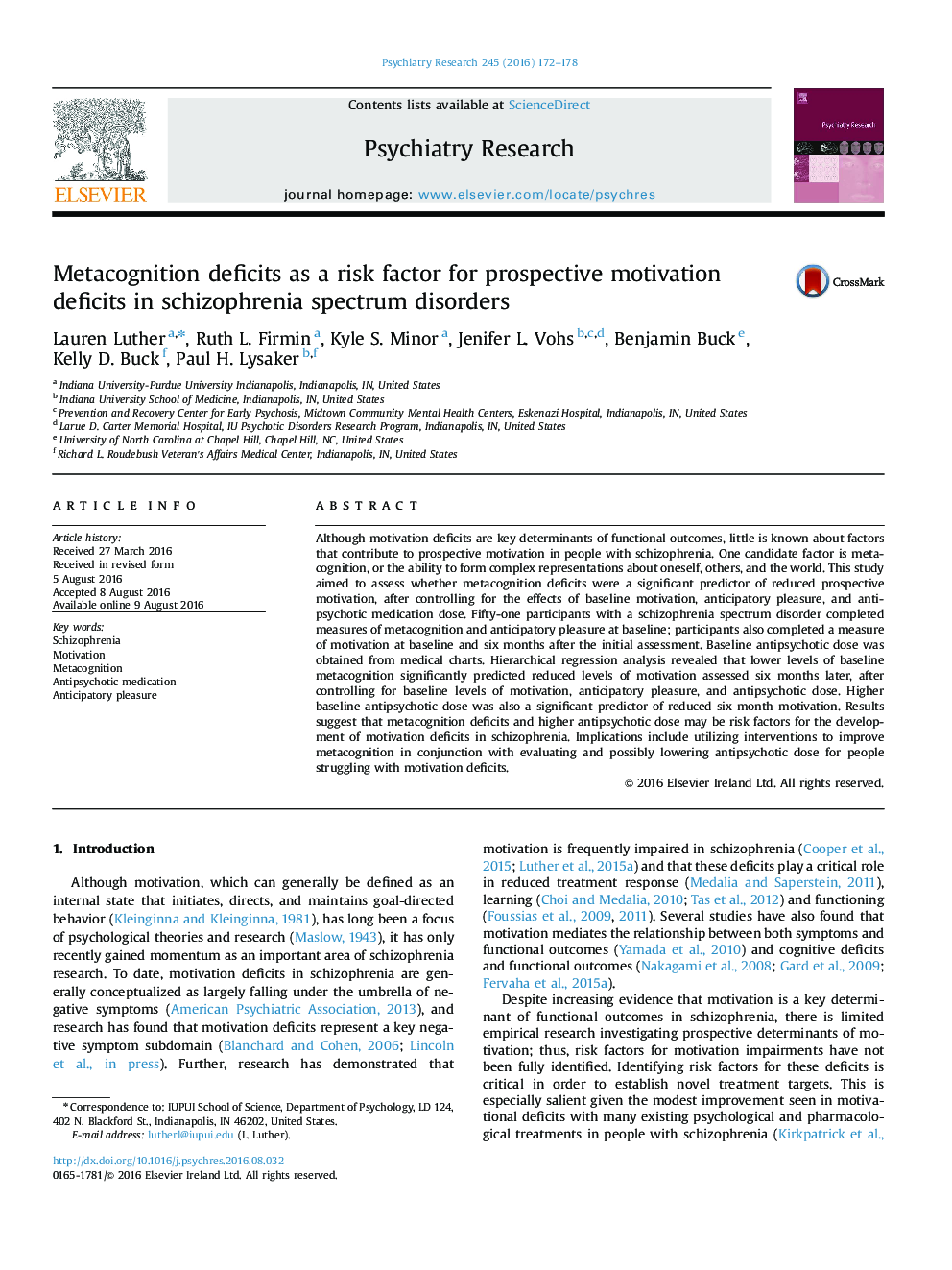| Article ID | Journal | Published Year | Pages | File Type |
|---|---|---|---|---|
| 6812356 | Psychiatry Research | 2016 | 7 Pages |
Abstract
Although motivation deficits are key determinants of functional outcomes, little is known about factors that contribute to prospective motivation in people with schizophrenia. One candidate factor is metacognition, or the ability to form complex representations about oneself, others, and the world. This study aimed to assess whether metacognition deficits were a significant predictor of reduced prospective motivation, after controlling for the effects of baseline motivation, anticipatory pleasure, and antipsychotic medication dose. Fifty-one participants with a schizophrenia spectrum disorder completed measures of metacognition and anticipatory pleasure at baseline; participants also completed a measure of motivation at baseline and six months after the initial assessment. Baseline antipsychotic dose was obtained from medical charts. Hierarchical regression analysis revealed that lower levels of baseline metacognition significantly predicted reduced levels of motivation assessed six months later, after controlling for baseline levels of motivation, anticipatory pleasure, and antipsychotic dose. Higher baseline antipsychotic dose was also a significant predictor of reduced six month motivation. Results suggest that metacognition deficits and higher antipsychotic dose may be risk factors for the development of motivation deficits in schizophrenia. Implications include utilizing interventions to improve metacognition in conjunction with evaluating and possibly lowering antipsychotic dose for people struggling with motivation deficits.
Related Topics
Life Sciences
Neuroscience
Biological Psychiatry
Authors
Lauren Luther, Ruth L. Firmin, Kyle S. Minor, Jenifer L. Vohs, Benjamin Buck, Kelly D. Buck, Paul H. Lysaker,
